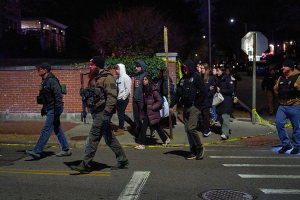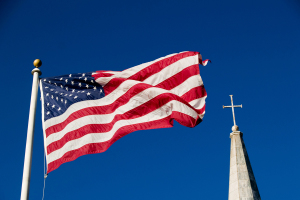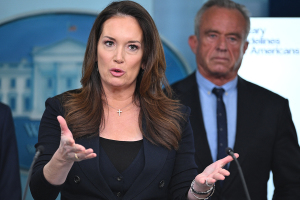Abortion and Adoption; Two Choices, Worlds Apart
Planned Parenthood of Greater Texas recently celebrated the opening of a new facility in Ft. Worth, TX. More than a few critics have noted the irony that the new Southwest Ft. Worth Health Center is located next to the Gladney Adoption Center, an organization that has been providing pregnancy support and adoption services to the country for 125 years. When questioned about their choice to build next door to an adoption center, Ken Lambrecht, President and CEO of Planned Parenthood Greater Texas said, "As far as we're concerned, being next door to Gladney is wonderful."
I suppose Mr. Lambrecht's perspective has a sort of logic about it, assuming you view pregnancy exclusively in terms of a women's rights issue. Having an abortion facility next door to an adoption agency provides a sort of one-stop shop for women with unintended or unwanted pregnancies. In Lambrecht's view, abortion and adoption are simply different choices that achieve the same outcome: women who are unwilling or unable to care for their unborn children are relieved of the burden of doing so. Neither choice is better or worse than the other. It's all about educating women about their options.
And this is really what our culture is all about today, isn't it? We revere choice, and we bristle at anyone or anything that would impose constraints on our choices. In a society where God's law and transcendent truths no longer inform our values, the buck stops with the individual. He or she is the one who decides what's "right" based purely upon how they feel about their situation. In response to this "rights" rhetoric, pro-life apologists often reply with their own version of the rights argument. If the Founders were correct, and we are all endowed with unalienable rights, then a woman's right to privacy (or bodily integrity, or a baby-free womb or whatever right she feels it is that her baby violates) must be weighed against her unborn child's unalienable right to life.
This argument is compelling, and cogent, and I would say, quite true, but it's not complete. When a woman chooses to end the life of her unborn child, she is not only guilty of violating that child's right to life, she is guilty of abandoning the sacred duty that arises out of the fact that she is also a mother. When a man and woman come together in sexual union and a life is created, a new person comes into being that has fundamental human rights. But something else is created as well. A new father and mother are created, and these new roles bring with them responsibilities and duties.
Abortion is a way in which a woman absolves herself of her new identity as a mother. The abortion "choice" represents a philosophy of self-centeredness in which life is viewed as a zero-sum proposition. "If I have my baby, my sense of self will be diminished. I will not realize my full potential. My child will inhibit me from becoming all I can be. It's the baby or me, and I choose me." Deliberate killing, therefore, becomes the final solution for a social problem.
Adoption is a way in which a woman embraces her maternal identity by giving her child the gift of life as well as blessing the child's adoptive parents with the opportunity to become parents. "If I am unable to keep my baby, at least I can provide an alternative in which she can flourish. I will place my baby for adoption. She will be afforded an opportunity I can't offer. She will have parents who love her and provide for her. Just because I can't provide for her doesn't mean my child should die. Someone else can enjoy the privilege of raising and loving this child."
The decision to opt for adoption becomes a win-win-win course of action. The baby wins because her life is preserved and she likely is provided with better options than her biological parents could offer her. The adoptive parents win because they are able to become parents. The biological mom wins because she embraced her identity as mother by finding the best path forward for her child.
The choice to abort and the choice to adopt are not equal, they are worlds apart.
Hopefully the proximity of these two facilities will turn out to be a good thing. Hopefully women who feel trapped and desperate will have the opportunity to learn about the services and support that the Gladney Adoption Center provides. Hopefully the adoption alternative will continue to gain traction as our society continues to recognize that abortion is fundamentally wrong. Hopefully the day will come when our society realizes the horrible toll that abortion has taken on us all, and we will recoil at the notion that we thought it was okay to kill an innocent child in order to make life easier for ourselves.
That day can't come soon enough.



























